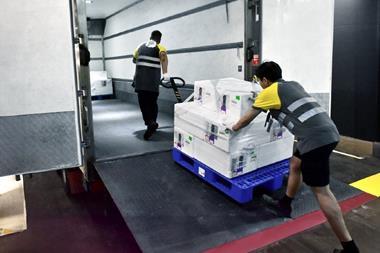
Source: Jaromir Chalabala/Shutterstock
A first draft of negotiable air cargo documents that would allow the transfer ownership of goods while in transit is expected to be presented to the United Nations next year.
The new document is being developed by a United Nations Commission on International Trade Law (UNCITRAL) working group consisting of delegates from UN member states as well as invited IGOs and NGOs.
The working group met at the United Nations Offices in Vienna from December 9 to 13 to continue inter-governmental negotiations on the draft international convention.
It is expected that the draft convention will be finalised and presented to the UN General Assembly for adoption in late 2025.
In an update, UNCITRAL said that one question being asked of the new document is how fast can different states adopt the documents.
However, it said that the convention does not provide for any rights or impose any obligations on states.
Instead, it provides a legal framework for transport operators to issue negotiable cargo documents/electronic records at the request of shippers/consignors.
Unlike ocean bills of lading, transport documents issued by rail, road and air carriers, which are often known as consignment notes or air waybills in the case of air cargo, are not used as documents of title and cannot be transferred to another party during transport.
The negotiable cargo document under development at UNCITRAL is intended to serve as a document of title to fill this gap in multimodal and unimodal transportation not involving a maritime leg.
“Negotiable cargo documents could increase trade flexibility and function as a credit enhancement tool in the context of trade finance,” UNCITRAL explained.
“Being able to switch to alternative modes of transportation in case of disruption of shipping routes without diminishing the value of collateral in the context of trade finance or losing the ability to sell goods in transit is another reason for shippers to use negotiable cargo documents.”
Negotiable cargo documents will exist in a digital form, known as negotiable electronic cargo records.
“The draft instrument will thus provide a legal framework for the issuance and use of a single electronic record that could cover door-to-door transportation, thereby simplifying the documentation process and increase efficiency in operations,” the UN organisation added.
















